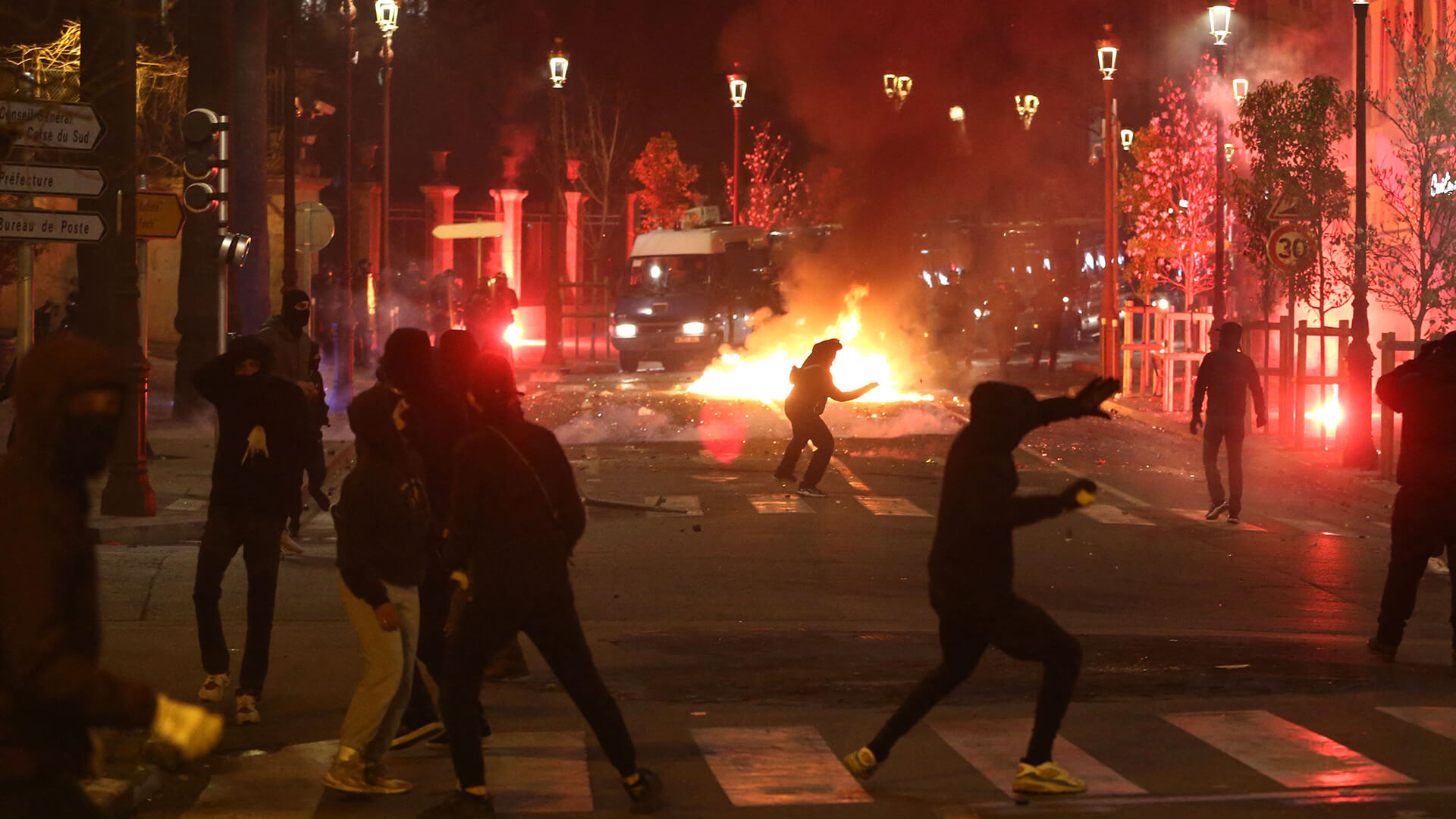On Wednesday, French Minister of the Interior Gérald Darmanin arrived in Corsica for a two-day visit to discuss autonomy for the island and restore peace between the French government and the pro-independence movement following violent protests.
In an interview with Corse Matin ahead of his visit, Darmanin said that the French government is prepared to engage in an “unprecedented discussion on institutional matters” and assured that this would be “logically initiated during the second term of the President of the Republic” if current French President Emmanuel Macron is re-elected. In this regard, Darmanin noted the willingness of many presidential candidates to grant Corsica institutional autonomy.
#France is prepared to consider some form of autonomy for #Corsica, Interior Minister Gerald Darmanin said ahead of a visit to the island which has seen violent #protests after an attack on jailed separatist leader Yvan Colonna.https://t.co/CkUJufpOy1 pic.twitter.com/K0DTyojNg2
— RFI English (@RFI_En) March 16, 2022
“We are ready to go as far as autonomy – there you go, the word has been said,” Darmanin said. However, he added that “there can be no dialogue while violence is going on. A return to calm is an indispensable condition.”
The clashes between police and protesters, which have been going on for several days now, erupted after a convicted murderer and pro-independence figure, Yvan Colonna, was left in a coma after being attacked by a fellow prisoner in a French mainland prison in Arles. Colonna is serving a life sentence for the murder of the French prefect Claude Érignac in 1998. He had long appealed to be moved back to prison in Corsica.
Following the attack, students, nationalist organisations, and trade unions accused the state of complicity in Colonna’s critical condition. 102 people, including 77 police officers, were injured in fierce clashes in Bastia on Sunday. Furthermore, on Wednesday, demonstrators occupied several public buildings and were heard chanting anti-government slogans.
Mass rioting broke out this week in the Mediterranean island of #Corsica. They’re demanding independence from France. In this video, rioters used construction equipment as a battering ram to smash open an ATM. pic.twitter.com/ynQwllClXH
— Andy Ngô 🏳️🌈 (@MrAndyNgo) March 13, 2022
To appease the protesters, France removed Colonna and two of his accomplices’ status as “detainees of particular concern.” The move facilitates their transfer from a prison on the French mainland to Corsica—a key demand of pro-independence activists for all political prisoners.
During the interview, Darmanin acknowledged the state’s responsibility in Colonna’s attack, but also rebuked protesters for excessive criticism. “This talk of a crime by the state is excessive, not to say intolerable,” he said. When questioned about what “autonomy” for Corsica would entail, Darmanin said this still needs to be decided and would take time.
Pro-independence activists have called for greater autonomy in employment, taxation, and language. Josepha Giacometti, the only pro-independence member of the Corsican Assembly, said, “The only autonomy that is worthwhile is one that grants legislative power [in] vital areas.”
The French Minister also met elected representatives, including Executive Council President Gilles Simeoni, in the Corsican capital of Ajaccio to negotiate and resolve the matter.
Simeoni welcomed Darmanin’s offer but said the proposal needed to be “followed up and given concrete form,” expressing hope for a “real political solution.”
In contrast, Luc Bernardini, from the nationalist group Core in Fronte, told RMC, “We don’t have much hope. We don’t understand how a minister can come here today and make suggestions, although he does not know if he will still be a minister in less than a month,” adding, “If he’s only coming to do us, or himself, a favour, our response will be the same as that of the last days on the streets. The Corsican people will say, ‘No.’”
The long-running dispute between Corsica and France could impact the upcoming French presidential election next month. Corsica is a French territorial collectivity with a population of roughly 350,000 people, and the decision to grant it autonomy would be unprecedented.

